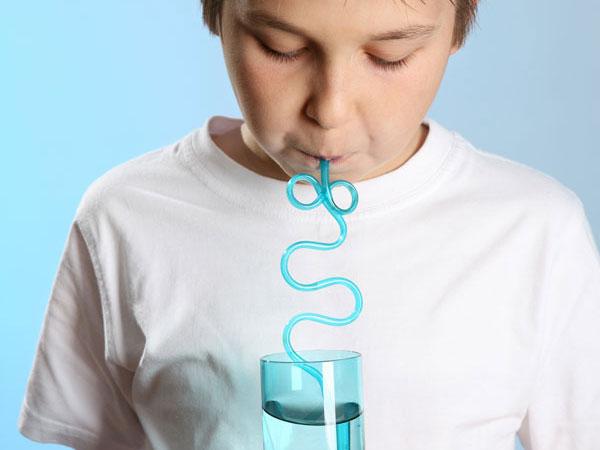
Erin Brockovich: Carcinogens Still Plague California's Drinking Water (Op-Ed)

Get the world’s most fascinating discoveries delivered straight to your inbox.
You are now subscribed
Your newsletter sign-up was successful
Want to add more newsletters?
Join the club
Get full access to premium articles, exclusive features and a growing list of member rewards.
Erin Brockovich is an environmental and consumer advocate. This article first appeared in The Desert Sun. The NRDC contributed this Op-Ed to LiveScience's Expert Voices: Op-Ed & Insights.
Our government should protect people from dangerous chemicals in our drinking water supplies. I'm not alone in that belief; basically, Californians agree. That's why, in 2001 our legislators mandated that the California Department of Public Health complete by January 2004 an enforceable drinking water standard for the cancer-causing chemical hexavalent chromium — a limit on the amount that this industrial contaminant that would be allowed in drinking water.
When the legislation passed, I was hopeful that our state would become a national leader, protecting residents from a dangerous contaminant that is known to cause cancer and is linked to liver and kidney damage, blood abnormalities, reproductive problems and can potentially harm a developing fetus. It's really a crime that the federal government has no such standard for drinking water and that the responsible state agencies have dragged their feet for nine years after the standard was required by law. Only after a lawsuit last year brought by two environmental groups — the Natural Resources Defense Council and the Environmental Working Group — was the state's Department of Public Health forced to issue a proposed standard, which it released for public comment in late August.
Unfortunately, this proposed standard is woefully inadequate to protect our kids and the rest of us from this toxic chemical, which industrial polluters across the state have let leach into our soils and our drinking water.
Even as the public comment period for this standard draws to a close on October 11, Californians everywhere should continue to urge state authorities that we want a standard that puts safety and public health first. In fact, the standard the department proposes — 10 parts per billion — is a mind-blowing 500-times higher than the public health goal identified by the California Environmental Protection Agency (CalEPA), a level which does not pose a significant health risk. CalEPA scientists determined that 0.02 parts per billion is a level that better protects us all.
For almost twenty years, I've been working with people exposed to hexavalent chromium. It contaminated the drinking water of the people of Hinkley, California. The story of their suffering, along with our 1996 victory against the responsible polluter, PG&E, was immortalized in the film "Erin Brockovich." When the state says it must base its standard, in large part, on costs, I think of the people I've known and worked with in Hinkley and in other communities who suffered and died from hexavalent chromium exposure. Operations and maintenance costs can be expensive, it's true. But cancer has a way of making other costs pale in comparison. It's time we tried prevention for a change.
[8 New Substances Added to List of Carcinogens ]
Get the world’s most fascinating discoveries delivered straight to your inbox.
And the truth is, there is a lot the California Department of Public Health can do to limit the costs involved in reaching a safe standard. It can help smaller water systems with technical and financial assistance. It can connect them to larger systems that can help them scale up and reduce expenses. In fact just this year, the U.S. Environmental Protection Agency issued a violation to the State of California for failing to spend one half of a billion dollars, its share of the Safe Drinking Water Act Fund (funds for water utilities to pay for drinking water treatment equipment).
The scary fact is that almost one in eight Californians drinks water that contains levels of hexavalent chromium that are above even the department's proposed standard. An Environmental Working Group analysis of the department's water quality tests found that about one-third of more than 7,000 samples were contaminated with hexavalent chromium. These water sources are spread throughout 52 of our state's 58 counties. They impact 31 million of our neighbors, especially those in the Central Valley and the Inland Empire.
For almost two decades, I have witnessed the terrible damage this industrial contaminant can to do kids and adults. For more than a decade, since the law mandating a safe drinking water standard for hexavalent chromium was first signed by Governor Gray Davis, residents of places with high hexavalent chromium exposure, like Hinkley and Kings County and Willits, have hoped and prayed for state regulations to put public health and safety first. The standard the California Department of Public Health proposed in August isn't that standard. Californians and hexavalent chrome-exposed communities across the state deserve a lot better than this. And it's time we let our officials know.
The views expressed are those of the author and do not necessarily reflect the views of the publisher. This version of the article was originally published on LiveScience.
 Live Science Plus
Live Science Plus











